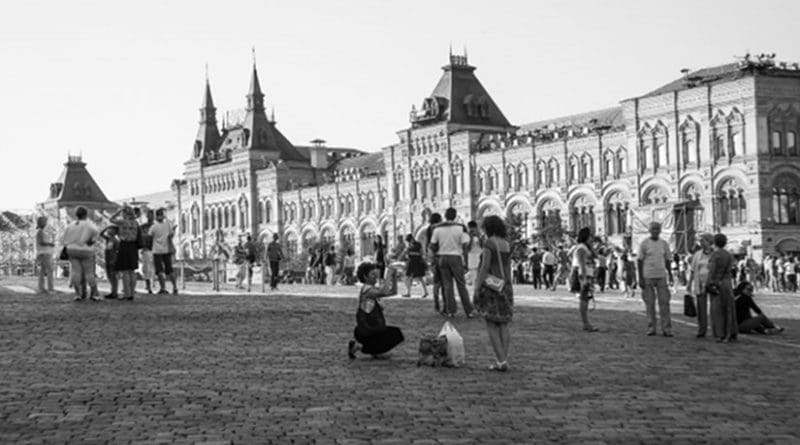Members Of Generation Z Want Russian Institutions To Adapt To Them Or They’ll Leave – OpEd
By Paul Goble
Members of Generation Z, those born in approximately 2000 and just now completing school, are the smallest Russian generation in decades and fundamentally different than any of the generations that have gone before them, according to sociologists queried by Stanislav Zakharkin of the URA.ru news agency.
Most of the members of this age cohort, Valeriya Kasamara of the Higher School of Economics says, have been cossetted by their parents who experienced the shock of radical changes and wanted to protect their children from similar challenges in their futures (ura.news/articles/1036275332).
Because of the relative prosperity of the first decade of this century, parents were able to do so, she says; but as a result, the members of Generation Z “are not hurrying to grow up, strive to remain children as long as possible, and continue to live with their parents” much longer than their immediate predecessors.
Sociologist Aleksey Firsov says that this has had the effect of keeping them from showing initiative or taking responsibility. Kasamara agrees: they grew up at a time of plenty and therefore had “no motivation for working only to get money. The main thing they value is self-realization.”
Given how much their parents loved and protected them, she continues, “they are certain that they are unique personalities. Their ideal is working on a freelance basis which they choose and which brings them satisfaction.”
Andrey Alyasov, another specialist on young people, says that members of Generation Z “are not able to work for long periods of time.” They are easily bored, and they change work far more frequently than their predecessors. They are also less interested in possessions. They prefer to rent rather than buy and care above all about experiences and impressions.
Generation Z is the first such cohort that has always lived with the Internet. As a result and in sharp contrast with their elders, those who are part of this generation, Firsov says, “do not see a boundary between online and offline.” For them, the two are the same.
“If Generation X still read books and Generation Y read them off of a computer screen,” Alyasov says, “Generation Z gets its information from its mobile phone and, in the first instance, via audio-visual means, that is, pictures or videos.” It is they who are “the main audience of the YouTube video bloggers.”
Kasamara says that “people born at the turn of the century consider themselves kings of information. But this opinion is mistaken. They do not have the most elementary habits of factchecking. They easily are led by what appears online and consider that if someone writes something, this is always the truth.”
Leonty Byzov, a sociologist at the Academy of Sciences, adds another dimension. Members of Generation Z have travelled far more than their elders and consider the world as their home. “As a rule, they know English well and are ready to get an education or make a career abroad.”
Businesses and government institutions will have to adapt to them, Ayasov says, members of Generation Z will simply leave and go abroad – and Russia will lose as a result. That means that Moscow will be faced with a difficult choice: change and lose some things it values, or not change and lose the future.

